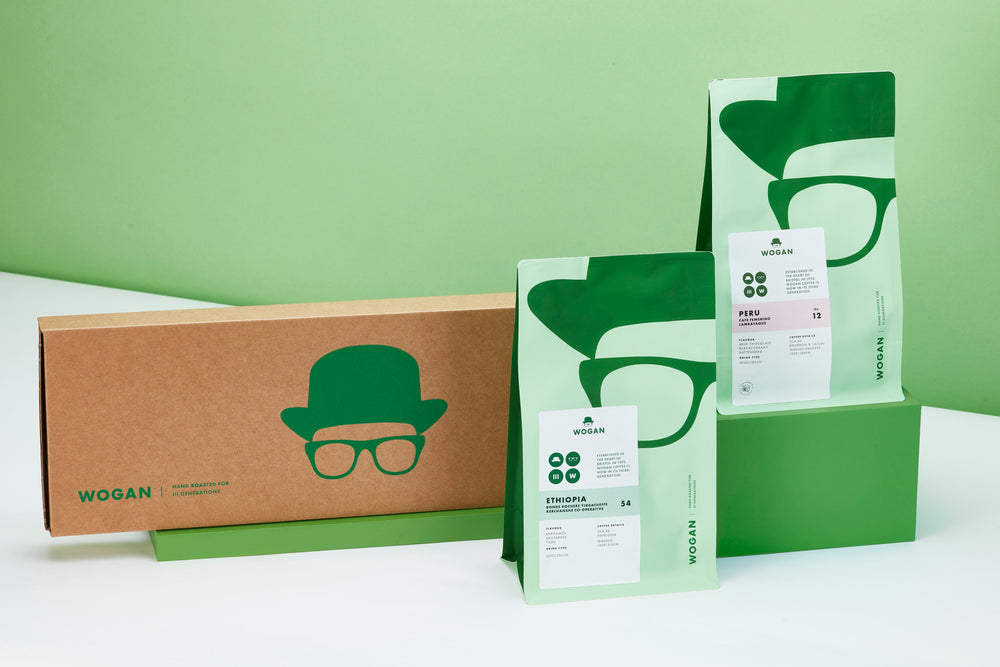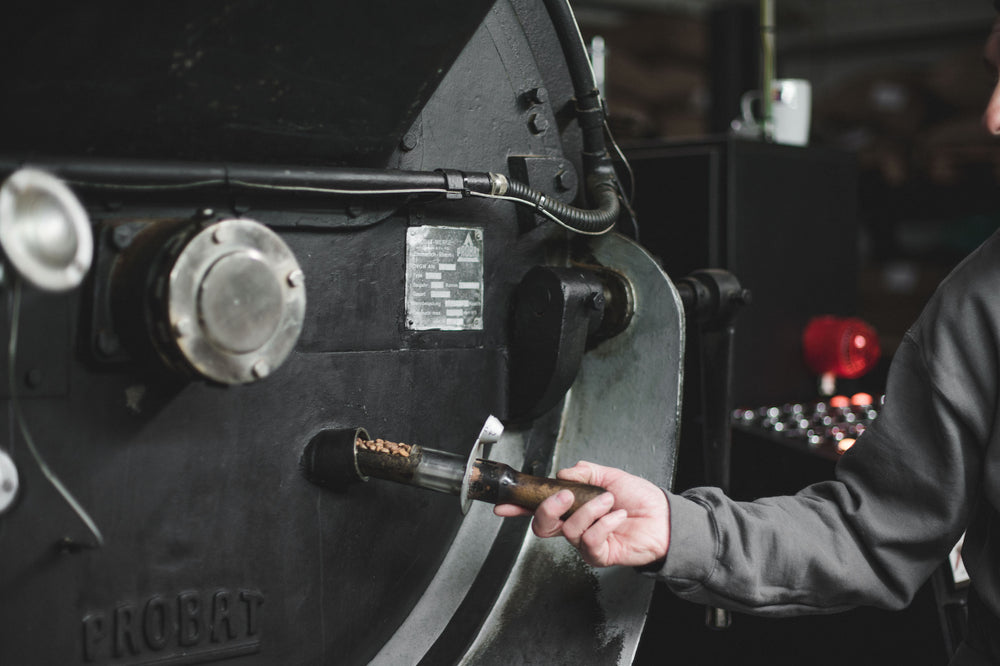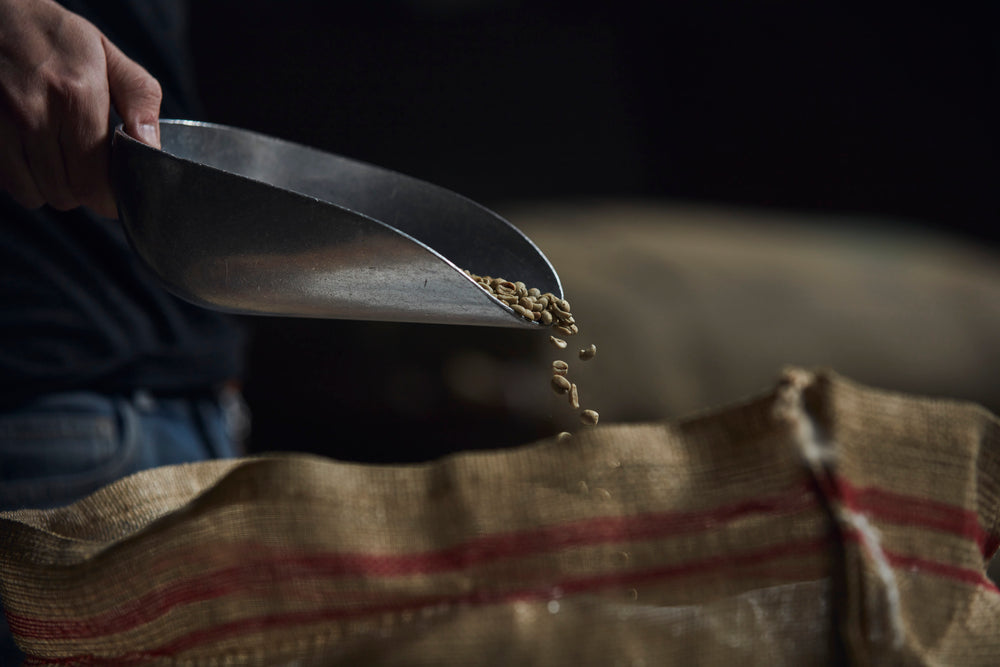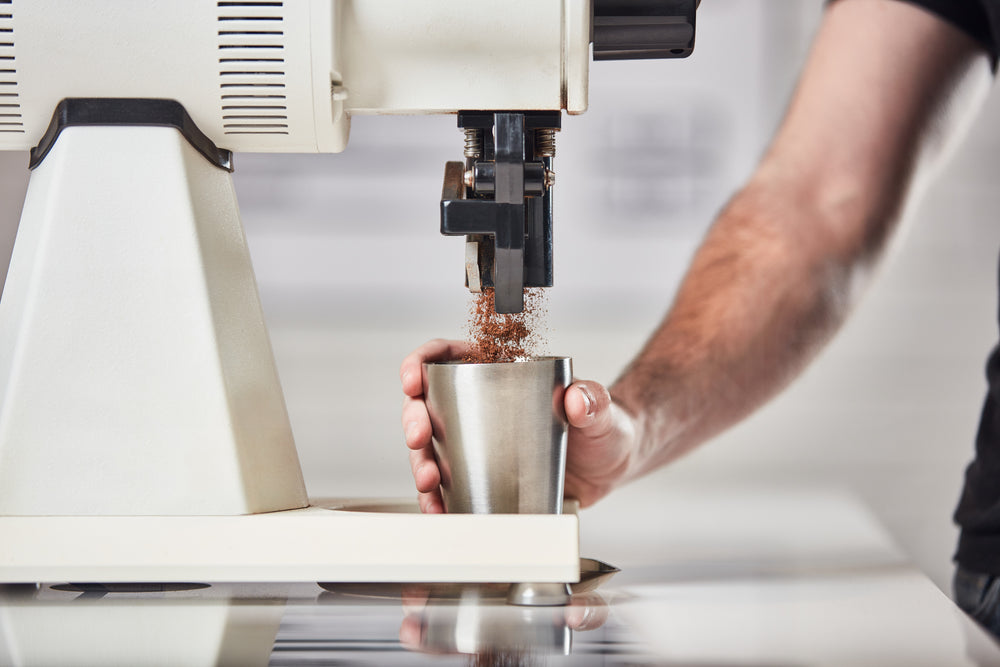In the ever-growing world of speciality coffee, Direct Trade promises better quality and ethical sourcing. So, what exactly is Direct Trade coffee? You may have seen the logo on some of our bags, so we thought it was time to delve in and explain!
Direct Trade is a sourcing model whereby roasters purchase coffees directly from farmers and producers, cutting out the middle men of exporters, importers and brokers. This can have a hugely positive impact on traceability, quality, ethical practices, and the wage income of those who grow the coffees you drink every day. Unlike Fair Trade, which focuses on a certification process and minimum price guarantees, Direct Trade emphasises quality, transparency, and direct relationships.
The Principles of Direct Trade Coffee
Transparency and Traceability
Direct Trade promotes transparency throughout the supply chain. This includes clear communication about pricing, quality standards, and the conditions under which the coffee is produced.
It is far easier to pinpoint exactly where the beans have come from with Direct Trade partnerships — a specific farm, co-operative, or even a family. Certainly with our Direct Trade partners, we also receive more detailed information, images, and updates on harvests, lots, and availability.
Fair Pricing
Prices can be negotiated directly between the farmer/producer and roaster, leaving for fewer people to consider as intermediaries requiring a cut from the deal.
Direct Trade aims to pay farmers higher prices than those offered by traditional commodity markets to reflect the quality of the coffee and the sustainability practices.
Although Direct Trade is not formally certified in the same way as Fairtade and Organic are, it often results in higher wages to farmers/producers compared to what they would receive by achieving Fairtrade accreditation, and lacks the financial barrier to achieving the Organic label. This of course brings greater opportunities for growth & improvement to workers, their families, and their communities.
Sustainability
Direct Trade often promotes sustainable, ethical, and environmentally conscious farming practices, helping reduce the carbon footprints of coffee-producing countries. Many Direct Trade agreements encourage or require sustainable farming practices, benefiting the environment and ensuring the long-term viability of coffee cultivation.
Focus on Quality
Direct Trade coffees often benefit from a strong emphasis on high-quality, speciality-level beans and growing practices.
The roaster has an opportunity to provide direct feedback on the delivered crops, sometimes even suggesting alternative processing or drying methods to improve the outcome — which is only ever a good thing! The better the coffee, the more sold!
The Benefits of Direct Trade Coffee
For Farmers:
- Higher Income: By eliminating intermediaries, farmers can receive a larger share of the final selling price.
- Investment in Quality: Higher earnings enable farmers to invest in better farming techniques, processing facilities, and sustainability initiatives.
- Empowerment: Direct relationships with roasters provide farmers with valuable feedback and market insights, empowering them to improve their product and business practices.
For Roasters:
- Quality Control: Direct interactions with growers allow roasters to influence farming and processing methods, ensuring a higher quality product.
For Customers:
- Superior Taste: Direct Trade coffees are often of higher quality, offering more complex and refined flavour profiles.
- Ethical Consumption: Customers can enjoy their coffee knowing that their purchase supports fair economic practices and sustainable farming.
-
Transparency: Greater transparency in sourcing allows customers to trace the journey of their coffee from farm to cup.
How is Direct Trade different from Fairtrade?
Whilst both of these models are intended to improve the livelihoods of farmers/producers, Fairtrade is a certified programme that requires specific standards to be met, which not all farmers/producers are able or willing to meet.
For example, coffee can only be certified Fairtrade if sold as part of a growers co-operative, which can mean the hard work of each farmer/producer can be lost in the blending with their neighbours' harvests. Direct Trade partnerships come with a significant focus on quality & consistency (as otherwise a roaster will simply choose to partner with another farm), though with a more flexible & attainable entrance point.
Direct Trade Coffees
Direct Trade coffee is a brilliant way of steering towards more ethical, transparent, and quality-focused coffee sourcing. By fostering direct relationships between roasters and farmers, it creates a more equitable and sustainable coffee industry.
Ready to give Direct Trade coffees a try? If you like the sound of dark chocolate, butter and hazelnut flavour notes, try No.11 Nicaragua Finca La Bastilla, P3 - it's one of our bestsellers!
















